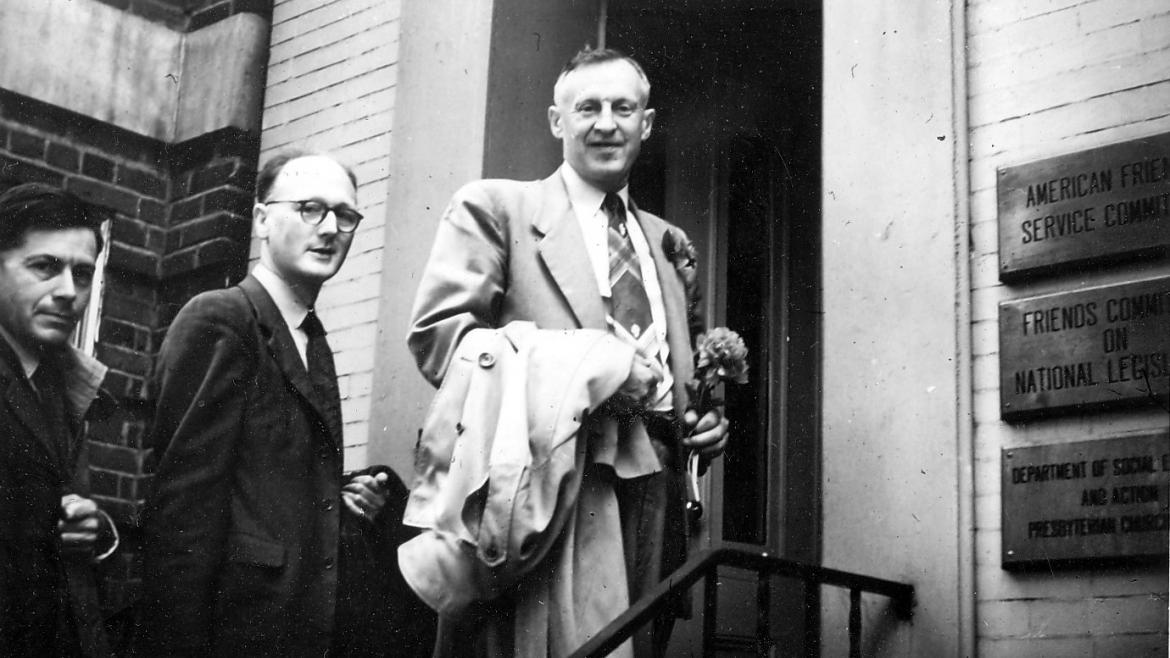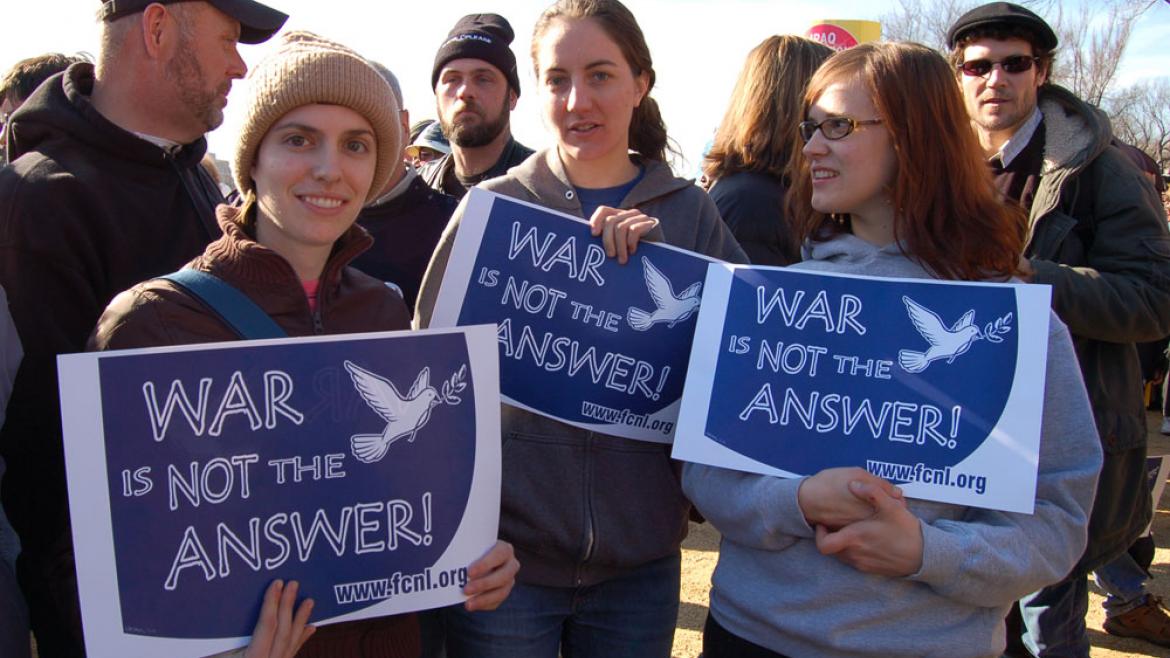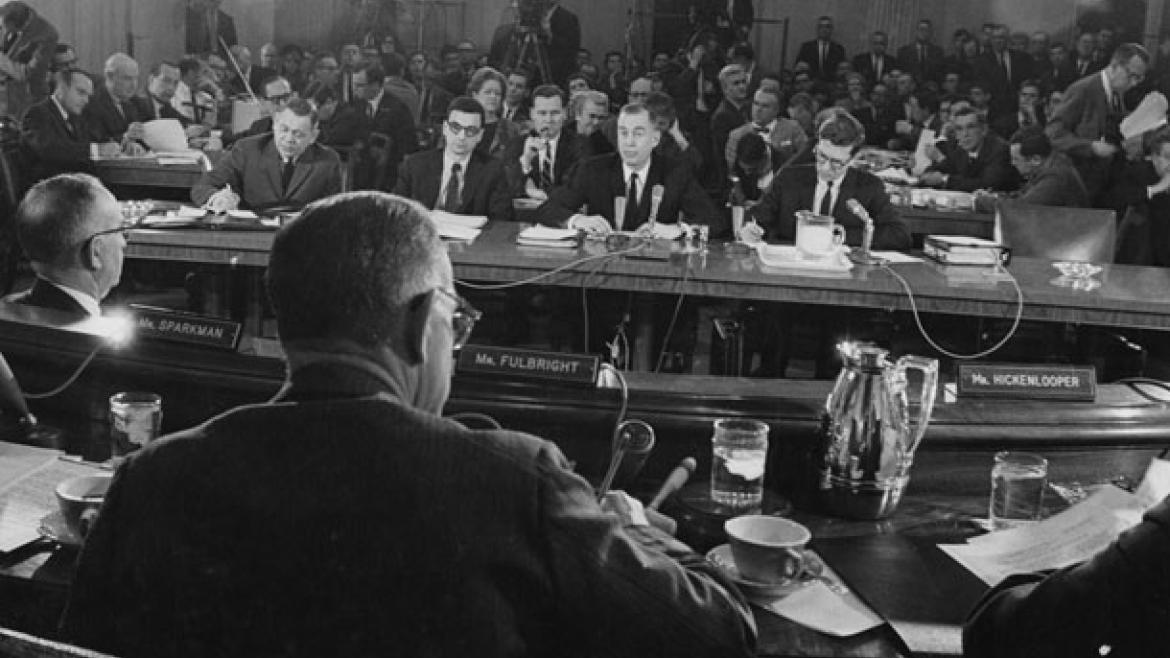Since 1943, the FCNL community has lobbied Congress to advance peace and justice.
We began lobbying against conscription and for aid to war-torn Europe in the midst of World War II, yet from the beginning Friends had a bigger vision - to plant the seeds of changes for a more peaceful and just world that might take decades to grow. Today, FCNL’s work includes many of the issues of concern to Friends, from military spending and racial equality to a more peaceful foreign policy and a healthy environment.
Throughout its history, FCNL has evolved and risen to meet the challenges confronting our country. As we lobby today and look to what’s ahead, we know that we were built for these times. Here are some of the highlights of this work.


